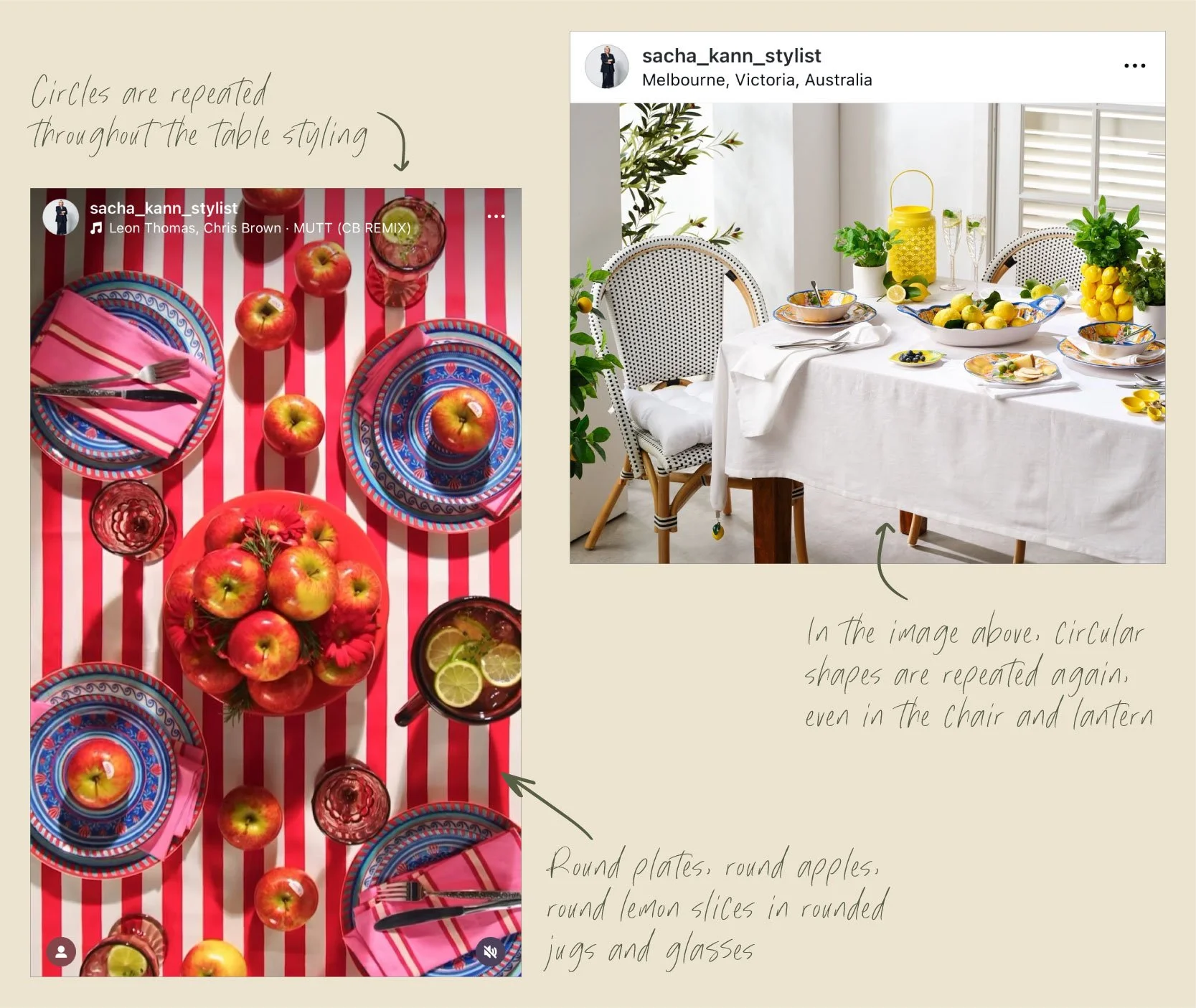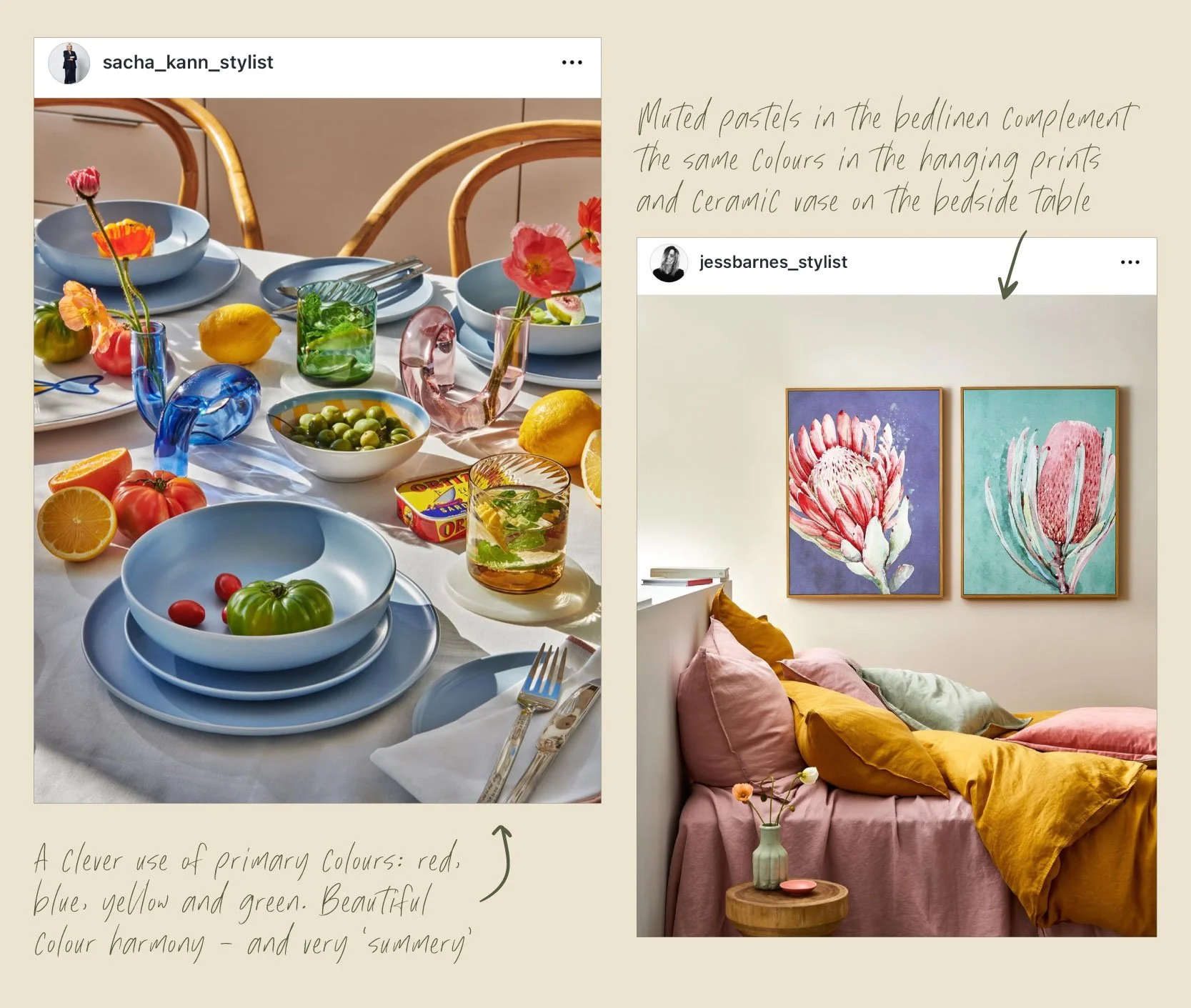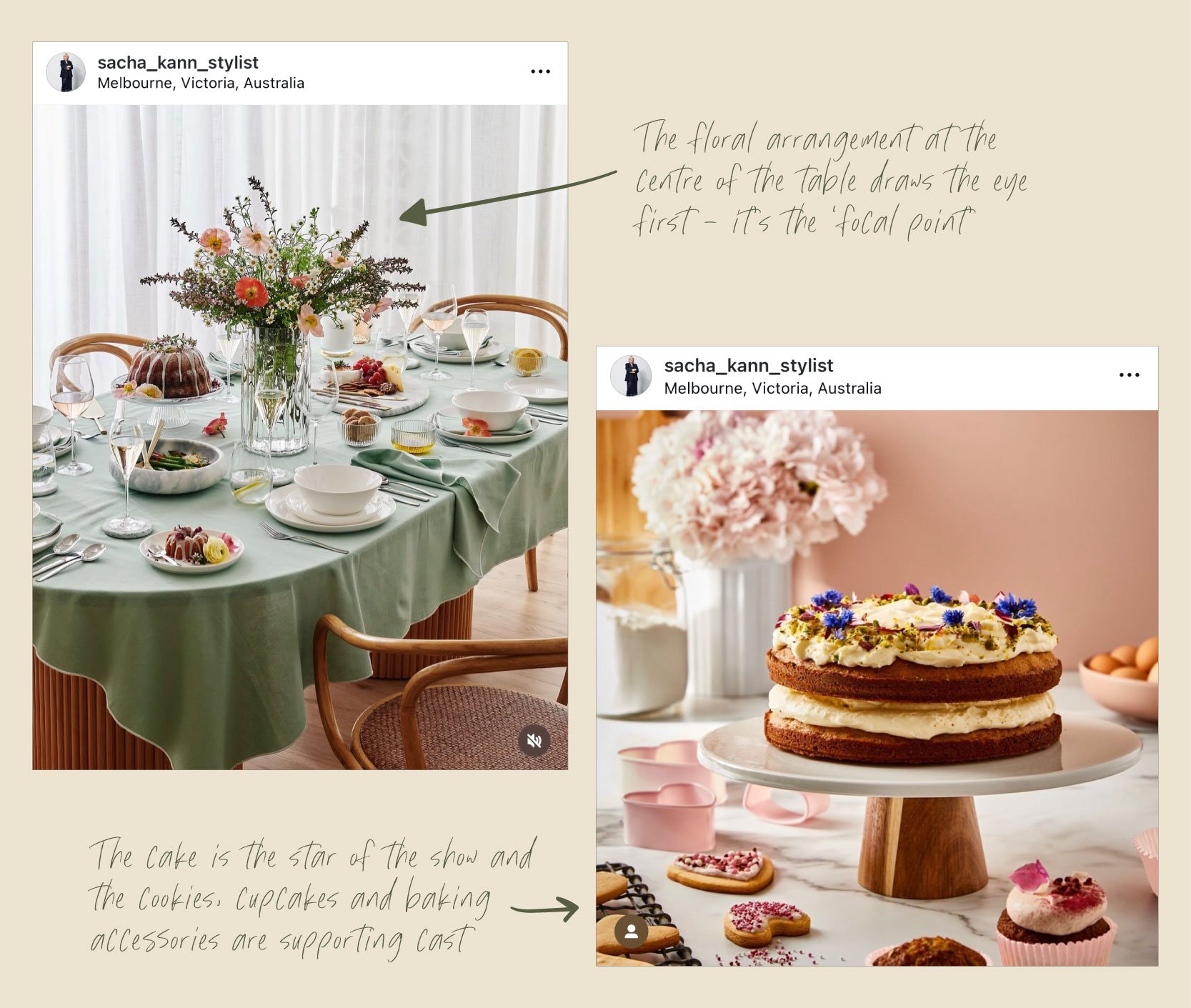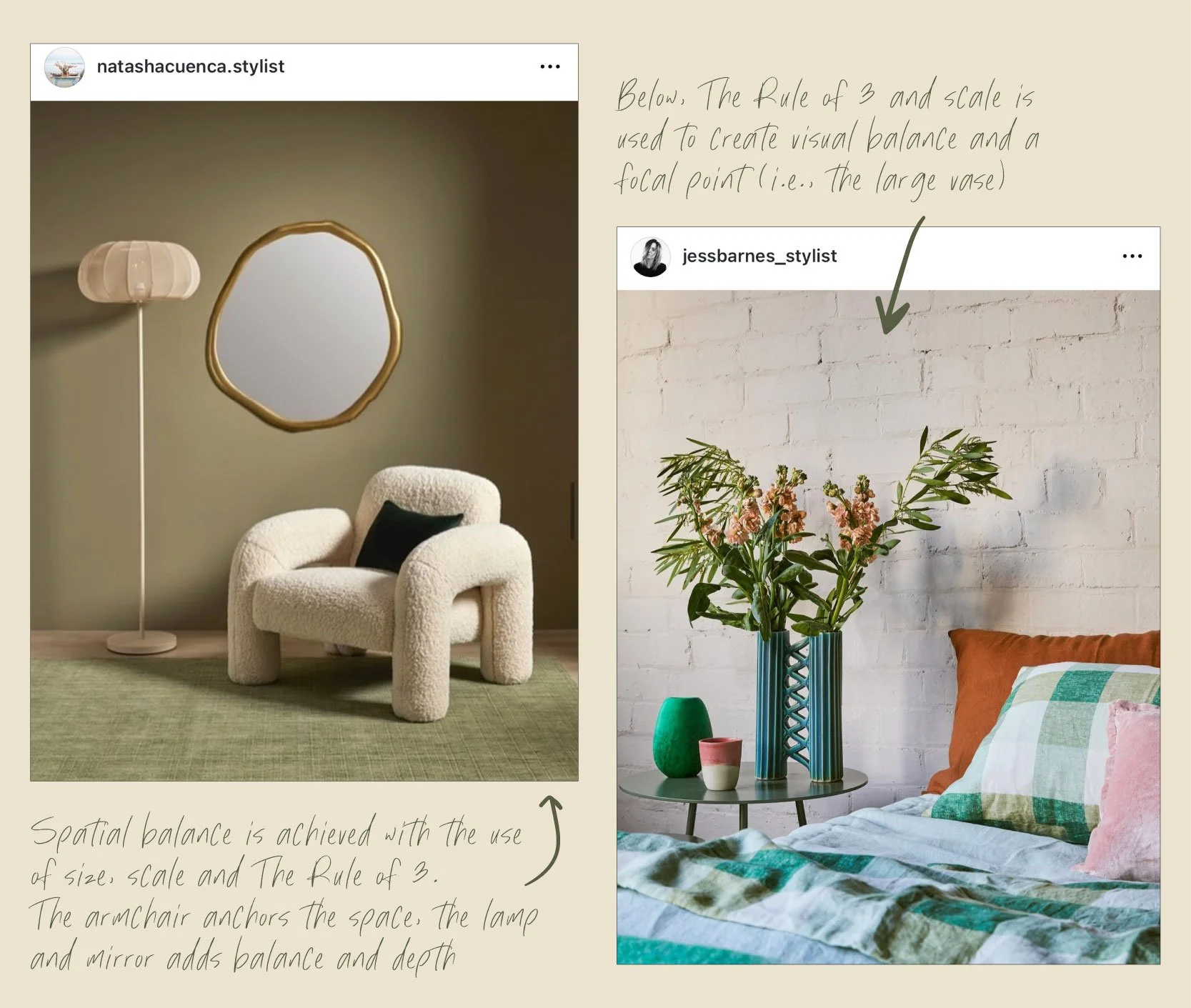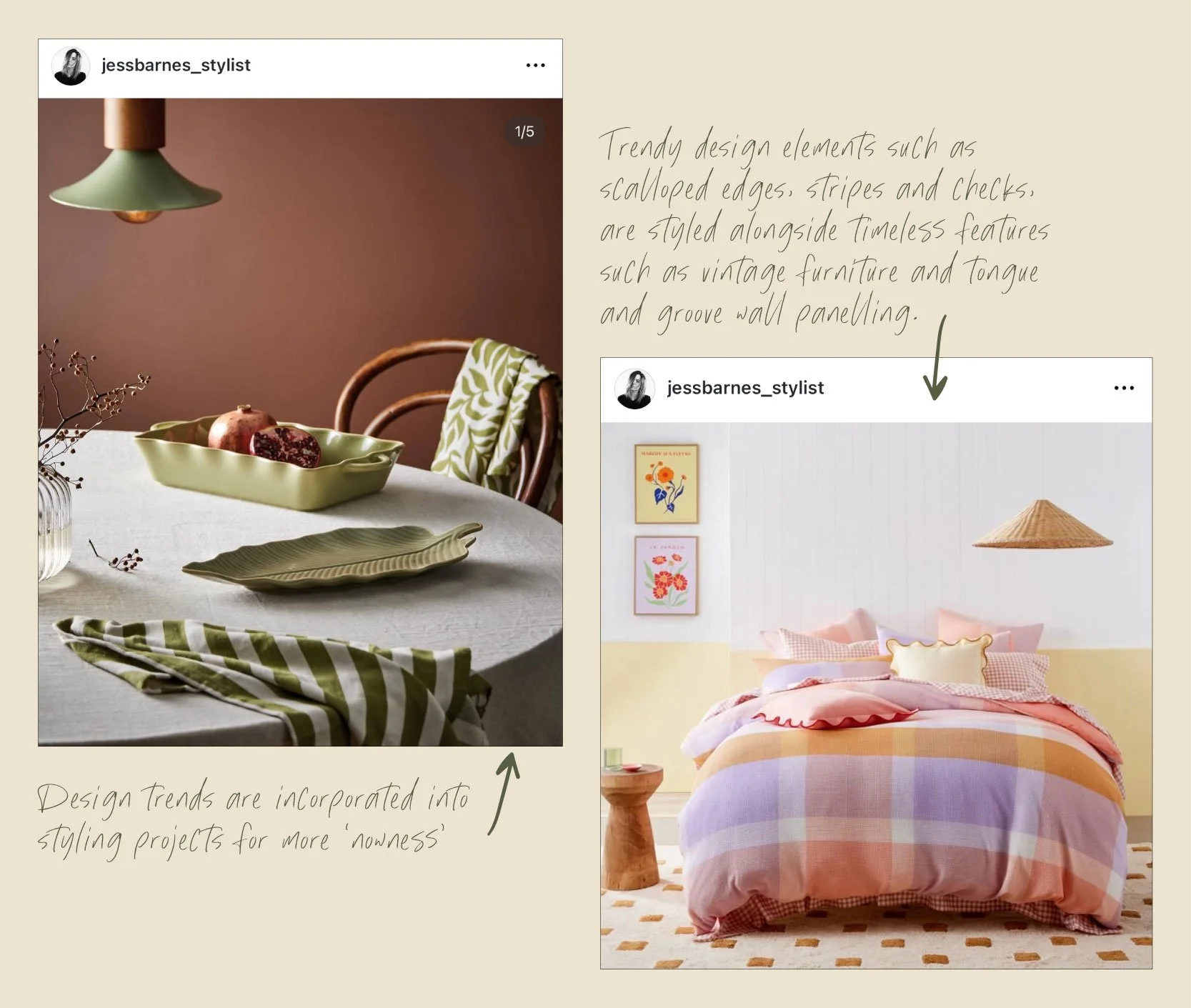Style Your Home Like a Pro Stylist With These 8 Styling Techniques
Not so long ago, I worked as part of the digital design team for a major Australian kitchen and homewares company. I had the privilege of working with a studio team comprised of the most incredibly talented food/interior stylists, as well as commercial photographers. Their work taught me a great deal about styling interiors and products. After spending every day analysing dozens upon dozens of gorgeous images from the studio, I noticed recurring techniques in their production process (which you can use in your home styling and tablescaping).
They:
1. Make styled scenes look natural and effortless instead of too perfect
They make scenes look ‘lived in’, warm, natural, and welcoming. An artfully rumpled doona, cushions strewn on a plush rug, ceramic plates stacked prettily. They avoid making things look uniform and clinical. It’s all about the come-hither vibes.
2. Create visual rhythm through repetition
Visual rhythm creates structure. They achieve this by repeating elements such as lines, patterns, and shapes to create a cohesive scene, while also intentionally leading your gaze from one object to the next.
Repetition is a technique I use a lot in my home styling, particularly with circles and curves. Check out my dining area for a good example.
3. Are very deliberate in their use of colour palettes and always ‘tie in’ colours
They obsess (in the best way) over colour. Colour is an essential part of their styling process and often informs the story and style of a shoot.
They create color harmony by matching products with colors that go well together and using these colors in the background and props. They also choose colors that complement the products and avoid mixing cool and warm tones.
4. Add visual depth by layering textures and objects, in the foreground and background
They mix different textures and items in front and behind to make a space look deeper. For example, stacking books next to slippers on a rug in front of a well-made bed, and putting a big flower bouquet in a vase on the bedside table. These things together stop the room from looking flat and give it a sense of depth.
5. Create focal points for composition and to anchor a scene
A focal point is what catches the eye first and helps the scene feel grounded. It’s made using composition, contrast, color, and size. For example, if the main item is a cake stand, they highlight it by placing a beautiful cake on it, centering it in the picture, and adding smaller related items like a cake slice, teacups, or baking tools around it.
6. Use ‘The Rule of 3’ to create balance and visual appeal
Grouping products in threes creates a more balanced and visually appealing arrangement. They make even more visual impact by combining objects in varying heights and sizes, and contrasting or complementary colours. This technique is often used in table styling, vases, books and ornaments.
7. Use lighting to set the mood and tell a story
Like colour, they utilise lighting to enhance the mood of a scene and tell a story. They may shoot in a studio 90% of the time, but you wouldn’t know by the incredible prop, setting and lighting work that goes into each shoot. They work with commercial photographers who can reproduce warm and inviting natural light or moody lighting. No harsh overhead lighting, ever.
8. Take inspiration from design trends, BUT always put their unique spin on them
Interpreting design trends is an essential part of their work, but they don’t just ‘copy and paste’ trends into their styling projects; instead, they take inspiration from them and incorporate specific trendy elements into their work that align with their creative brief. They don’t try to make an entire shoot look like a catalogue of what’s trending.
All these techniques are subtle in their execution but make a noticeable difference in the overall aesthetics and ‘feel’ of a scene/space/image.
P.S.: I’ve included the Instagram handles of the stylists and photographers whose work I’ve shown in this post. Click on the links below to check out their stunning work!
Interior & Food Stylists:
Sacha Kann
Jess Barnes
Cass Huett
Natasha Cuenca
Commercial Photographers:
Paul
Niki Schuch



